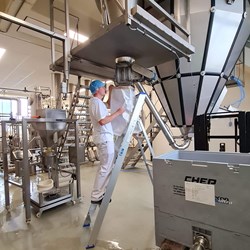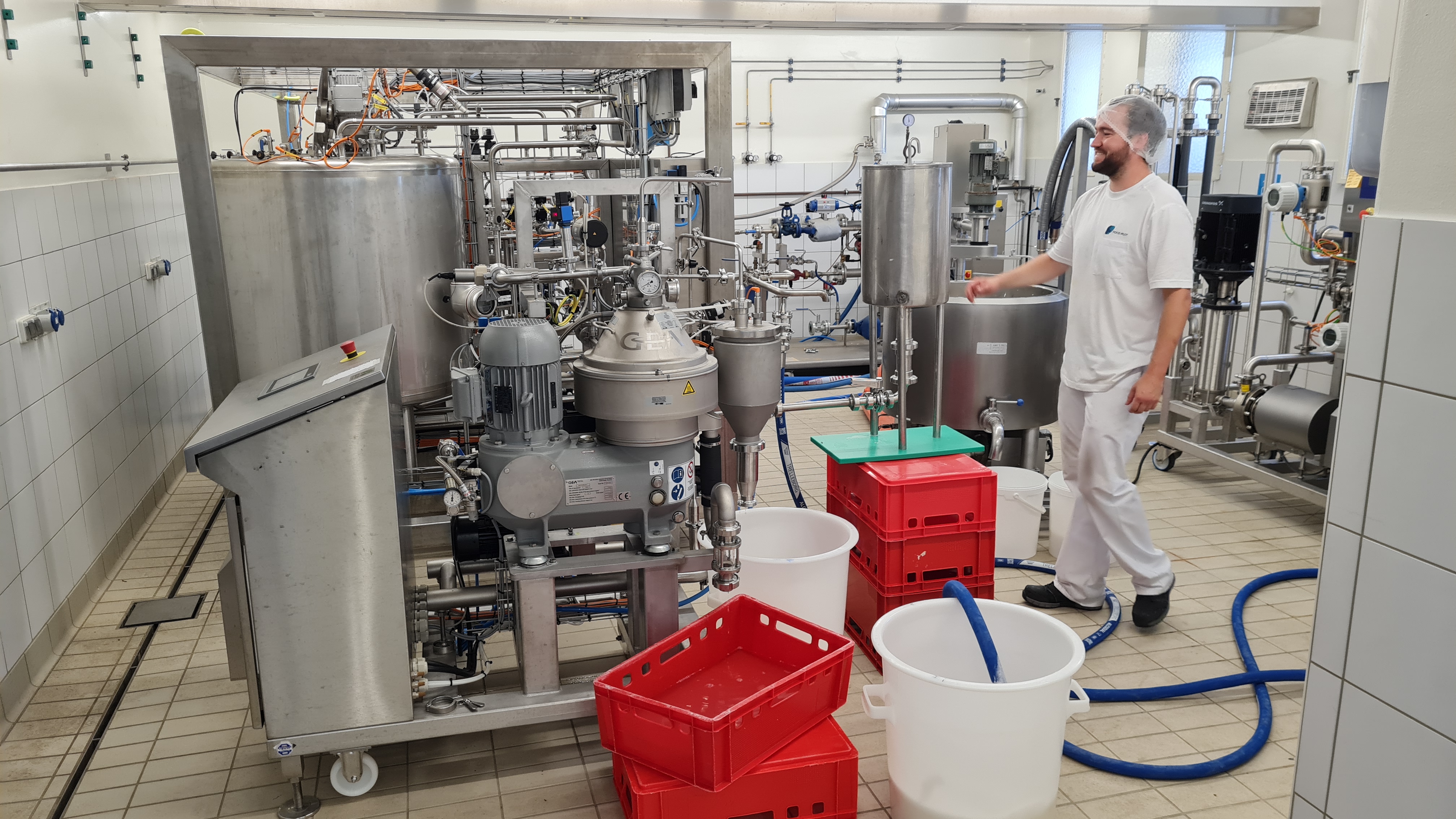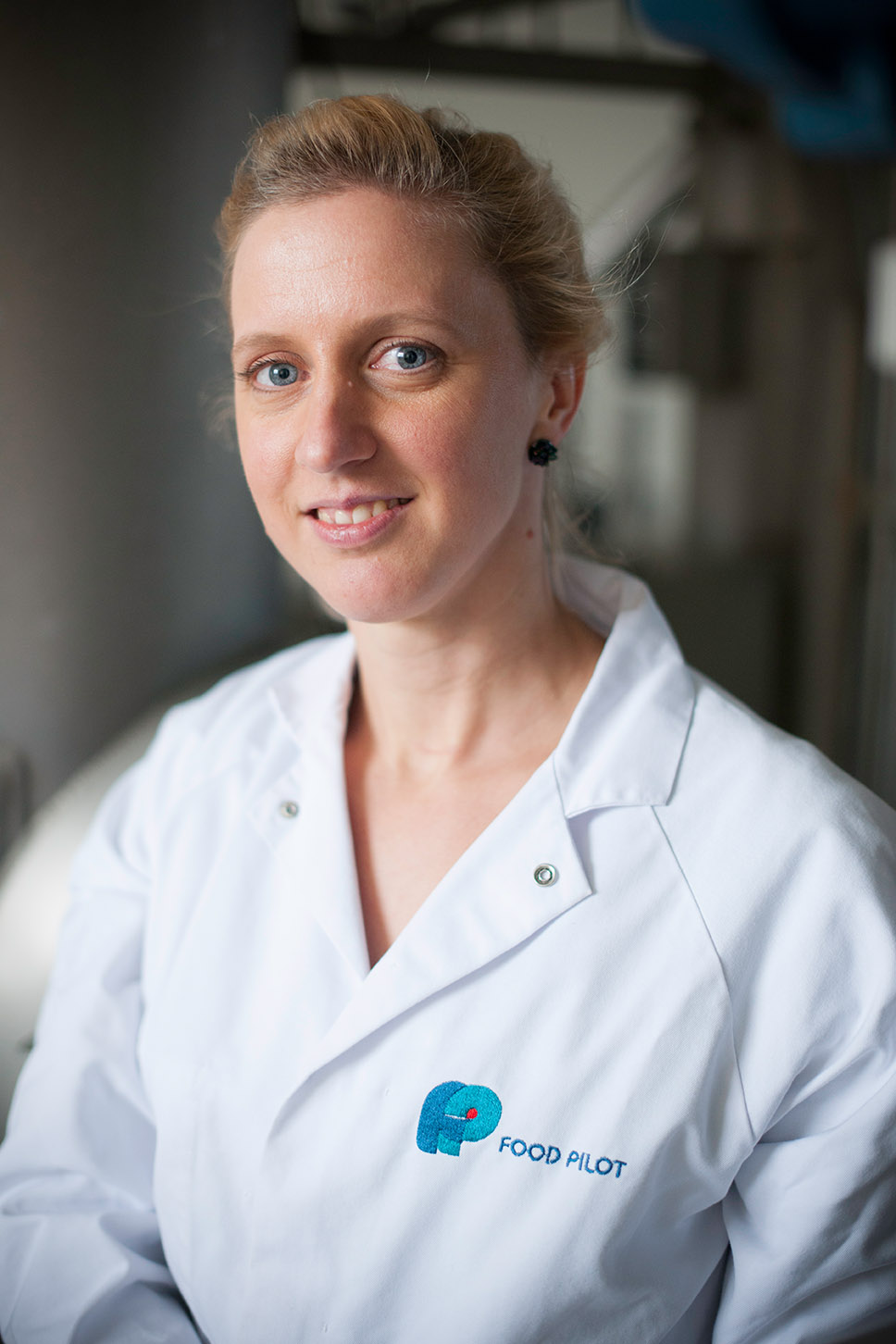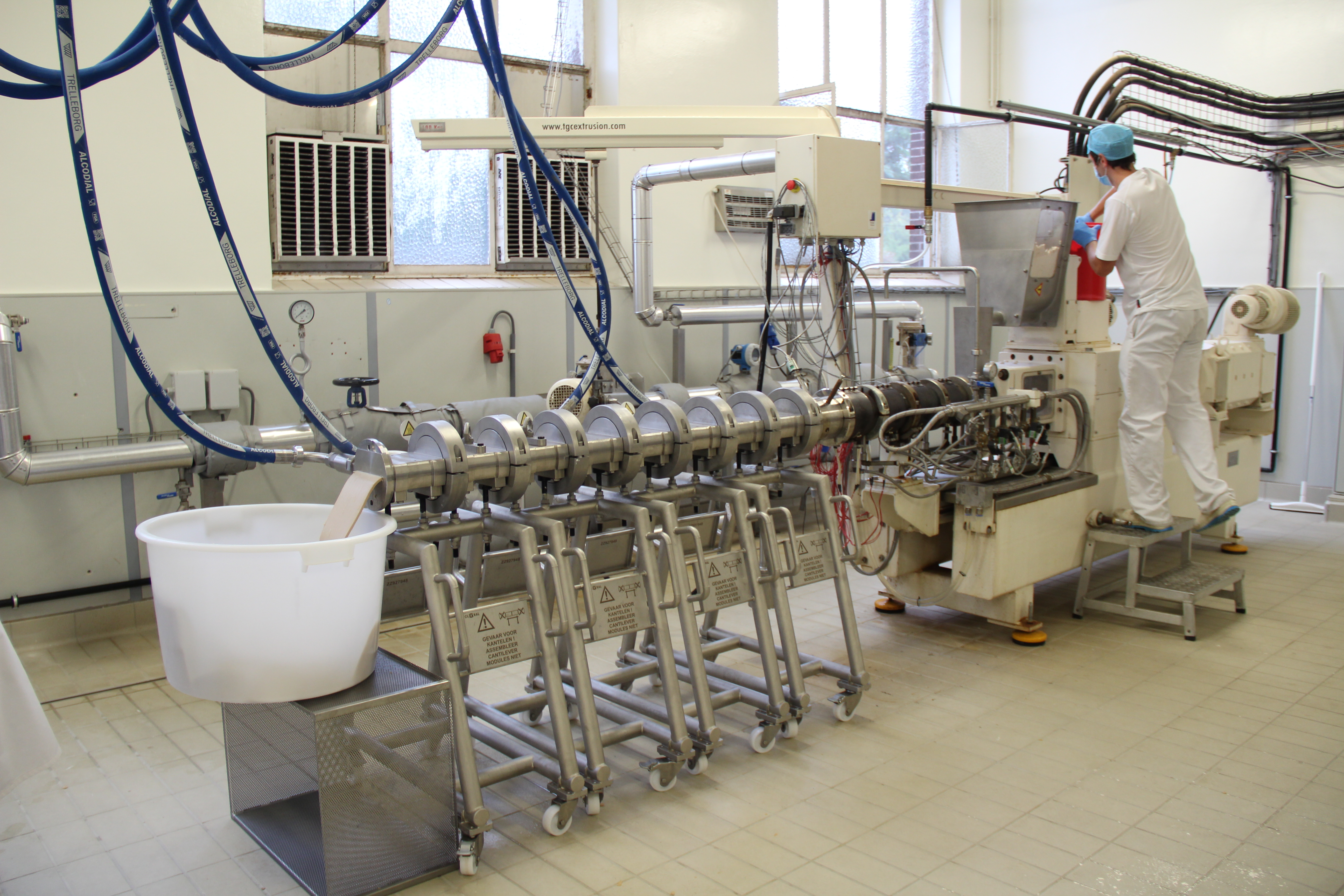


The ProteInn Club supports, facilitates, and accelerates the development of companies involved with fermentation-based proteins. ‘The developments offer them many opportunities,’ says Karen Verstraete of ILVO. She also discusses some challenges.

The ProteInn Club provides knowledge and answers to companies that wish to seize opportunities and meet the challenges in the value chain for more sustainable proteins. ‘The club works to achieve this by facilitating innovations and accelerating the development of a unique ecosystem around fermentation-based proteins,’ says Karen Verstraete of ILVO. The initiators of The ProteInn Club are Bio Base Europe Pilot Plant, UGent, CAPTURE (strategic collaboration between UGent, UA, VUB and VITO) and ILVO and Food Pilot (the collaboration between ILVO and Flanders' FOOD).
Ecosystem
The ecosystem consists of raw material suppliers, biotech companies, food and feed companies and technology providers working on the protein transition, excellent knowledge institutes and world-class pilot facilities for research and development. There are now 33 companies that make up The ProteInn Club.
Fermentation
Two types of proteins can be produced through fermentation, namely biomass proteins and precision proteins. In the production of the first type, the entire protein-rich biomass is harvested.
For precision proteins, micro-organisms can be induced to produce a specific protein through genetic modification. The proteins contribute to the flavour, colour, and nutritional value of plant-based alternative products.
Diverse challenges
In addition to legislation and regulations for ingredients, food and feed products in which micro-organisms are used for the production of proteins, there are many technical and systemic challenges. Verstraete refers to process optimisation and scaling up the production of proteins. This involves making the process more efficient, sustainable, and economical.

'The focus is on increasing yield, productivity, and purity. The costs must also be carefully considered, including those of purifying the proteins after fermentation. The downstream processing entails removing the proteins from the fermentation tank by centrifuging and drying them. 'The delicacy of proteins must be taken into account; denaturing is sometimes desirable,' notes Verstraete.
Economic feasibility
She also says that The ProteInn Club wants to analyse the cost model to determine its economic sustainability, taking into account raw materials, production costs, and the sales price. The priority is to strike a balance between the degree of ecological sustainability, the cost of raw materials, and the market price. A Coock project has been submitted to VLAIO for this purpose.

Life cycle analysis
A life cycle analysis is an obvious choice for determining the ecological footprint of the value chain. This analysis calculates the total environmental impact of a product throughout its life cycle, including the extraction of the necessary raw materials, production, transport, use, and waste processing. Because choices are made at each step in the value chain that have a different impact, the analysis is specific. Because no consolidated data is available, accurate data must be generated.

“It is always advisable to maintain a critical perspective on your own products and adjust them to contemporary needs where necessary”, emphasises Marijke Adriaens, CEO of frozen food company Fribona. “For consumers, taste is still the main consideration. It is essential to work towards a product that is, above all, tasty and visually appealing.”...

Scientists from KU Leuven have discovered how oil penetrates snacks during and after the frying process. Recent research findings point to advanced frying techniques that reduce oil absorption, as well as innovative methods to limit oil uptake during the cooling phase. This paves the way for the development of healthier snacks without compromising...

Food companies are increasingly targeting a wider range of consumer groups. Speaking at an event organised by Fenavian, Julian Mellentin of New Nutrition Business said this strategy offers significant opportunities to respond to the diverse health needs and interests of today’s consumers. “Consumers enjoy both animal and plant-based proteins”, he...

Backed by financial partners, Start it @KBC is launching the accelerator programme Scale it Agro, aimed at scale-ups offering sustainable and innovative agricultural solutions for agriculture and horticulture businesses. Kjell Clarysse, programme director at Scale it Agro, goes into more detail.